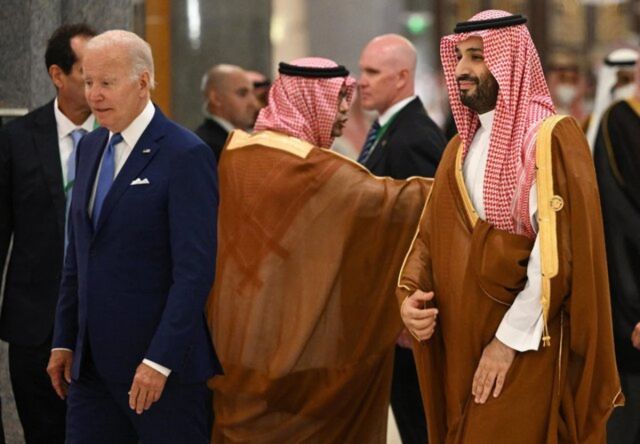Dr. Gholamreza Khaaji, in an interview with the website of the Strategic Council on Foreign Relations, referred to the decision of the US Department of Justice to grant immunity to bin Salman and not to follow up the case of the murder of Jamal Khashoggi, while the authorities and intelligence agencies of that country had previously confirmed in various forms involvement of bin Salman in Khashoggi’s murder and made a clear stance on it and stated: Khashoggi’s murder in the Saudi consulate in Istanbul has been fully established and according to the 1961 Convention, this act is an international crime.
Emphasizing that countries that have signed the 1961 Convention cannot give immunity to the perpetrator of the crime, he said: The recent action of the United States has been carried out in a situation where it has been established for that country that bin Salman is the future king of Saudi Arabia; therefore, if he comes to the throne with such accusation of murder, in terms of international humanitarian law, the regime of that country is illegal and illegitimate. Even now that bin Salman is acting as the crown prince and has been appointed as the prime minister, this accusation should still be dealt with in a competent court.
The international law analyst pointed to Biden’s 2020 election slogans, in which he repeatedly stated in the crowd of his supporters that he would not tolerate the murder of Khashoggi and that the main perpetrators of the crime should be punished, and continued: The accusation of criminality against bin Salman is serious and the US measure in granting him immunity has no legal basis and is a completely political decision.
While referring to the US effort to improve its relations with Saudi Arabia in competition with China and Russia, as well as to control the energy market in the conditions of the war in Ukraine, Khaaji added: The American judge of the Khashoggi court had given the American government a deadline to respond to the request of bin Salman’s lawyer to grant legal immunity to his client due to his high political position, but according to the American media report, even the response to this request was not binding and the White House could have expressed no opinion about it, but still the decision to grant immunity by the judge has been made with political pressure and the White House has agreed with it.
Emphasizing that the US has committed many international crimes at different levels, he said: Those crimes are normal for the Americans and they do not consider it a criminal act. The US does not have reputation among experts regarding committing international crimes, but the public opinion of the world should be aware of this clear violation of international laws by knowing the subtleties of such cases and crimes.
The professor of international law stated that after Khashoggi’s murder, the United States and Western countries sought to ban the sale of weapons to Saudi Arabia, but now they gave immunity to bin Salman, noting: The US first, with the claim and gesture of supporting human rights, discussed banning the sale of weapons to Saudi Arabia, but those were propaganda maneuvers. The interests that the country has with Saudi Arabia, as its milk cow, are as such that if Saudi Arabia and its citizens commit the biggest crimes even in the US, it will not reduce its relations with that country.
Stating that murder at any embassy or consulate is an international crime, Khaaji emphasized Turkey’s role in pursuing the case of Khashoggi’s murder and added: The economic situation of those countries is as such that Saudi Arabia prevents them from dealing with its crimes against human rights with financial promises and lobbying. However, Turkish judges and lawyers, who have a legal obligation and responsibility, should pursue this case at the international level. Even other countries have the possibility to raise it and, for example, they can pursue this issue in a meeting with the prosecutor of the International Criminal Court.
Emphasizing the role and importance of holding “international moot courts”, the professor of international law explained: The United States, Switzerland, and the Netherlands present cases by simulating international legal and criminal courts; this issue is also done to deal with independent or opposing countries. In those simulated courts, the heads of those countries are introduced as international criminals. Now that human rights claimants are silent about that heinous crime, other countries or even their universities can conduct a judicial and criminal investigation of that crime by holding mock trials.
The analyst of international law affairs continued: Of course, Iran has also held good “moot courts” and the country’s universities can simulate the trial of bin Salman.










0 Comments